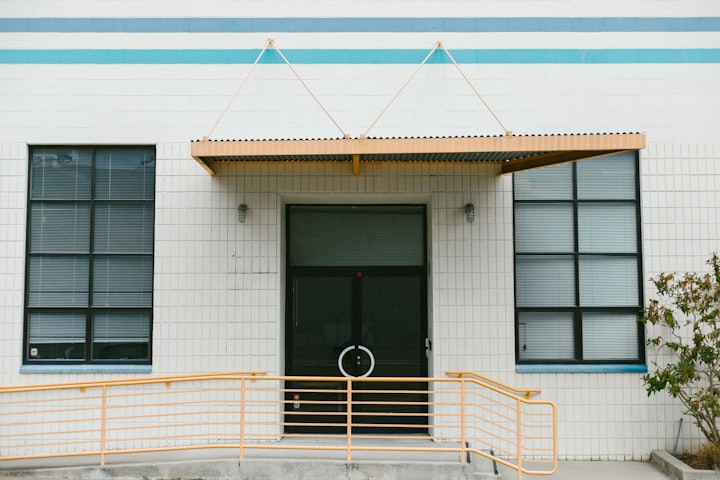The Boom After the Pandemic to Fix Our High Touch Lives
Why all the touching of "things" we do in our modern existence means a great opportunity for businesses and entrepreneurs in the wake of the coronavirus

You see it everywhere you go today as yes, we begin to go again today. And whether you are a germaphobe or not, all of us are taking note of one thing as we escape from the isolation of “quarantine life” and return to living outside our own four walls. That is the simple fact that life in 2020 requires a whole lot of touching of “stuff.” And this means one thing: opportunity!

Think about it. When you approach any entryway - to a business, to a store, to a building, to a classroom, to a hospital, to a home (even your own), you have to touch a door. When you need to go upstairs in a building of any kind beyond 2 floors, you basically need to use an elevator - and that means touching buttons. When you go to a restroom, you have to touch, well, many things (we need not go into details). But take the simple task of washing your hands - perhaps the best thing one can do to protect yourself against not just the coronavirus, but a whole host of germs. How do you turn the water on and off? How do you dispense the soap? How do you dry your hands? If each of those tasks requires you to touch something - ding, ding, ding, there’s a problem there!

In other words, we have constructed a physical world that requires a whole lot of touch, and in the post-pandemic world, that is not a good thing. But beyond just the door handles, the water faucets, and yes, the toilet seats that we have to touch as we go about our daily lives, the technology that is becoming more and more present in the course of us conducting the physical parts of our daily routines is highly touch intensive. More and more of our experiences at restaurants, at banks, at airports, and on and on and on is based on self-service. While much of this can - and now should - be done through our smartphones, much of the service economy’s physical infrastructure is based on having customers touch kiosks, touch screens, keypads, and even the store’s, the restaurant’s, the bank’s fixed iPads or other smart device.

And so for all the hand sanitizer and for all the masks that we may use to fight the spread of the coronavirus through the air, we have a huge touch problem. But that also means that we have a huge touch opportunity! As a business professor and consultant, I truly believe that the COVID-19 pandemic - and the fear, anxiety, and yes, germ-awareness that it has generated - will create changes across much of how we live, work, shop and more. And while there will be great tech opportunities created out of all of this, I truly believe that one of the more lasting impacts of the coronavirus - and one of the greatest opportunities to come from it - will be in physical world, namely to find ways to reduce all the darn touching that it takes to get around, get things done, and yes, maybe even have a little fun in the world outside our homes.

So, we need to find ways to open doors without touching them. We need to find ways to turn on the water and yes, to raise the toilet seat, without using our hands. We need to find ways to provide secure entry into buildings, classrooms and spaces and egress through doors without having to enter a code on a keypad. We need to find ways to enable in-store and in-restaurant ordering without employee assistance but without the customer having to touch a screen to do so. Yes, the smartphone can do much of this, but the fact of the matter is that even in 2020, not everyone has one - and even those of us who do will need to have a “workaround” for the times that we leave our phone at home, in the car, at a friend’s house, or the phone is just lost “somewhere” (yes, screaming electronically to be found!).

And so yes, I do believe that there will be huge growth in existing technologies and huge investments made in new tech that will enable us to have a less touch-intensive, more contactless existence moving forward. Whether it be simply the increased use of RFID-enabled access cards or the push for more sophisticated - and secure - egress, activation and access technologies such as biometrics, through things like retinal, facial or hand/finger/scanning, any tech that can eliminate a touchpoint will see huge sales potential not just in the United States (although because our country was the hardest hit by the pandemic, so far, this means that we will be the biggest and the most receptive market for contactless technologies), but globally as well. There may well be whole new market segments and industries that will develop over the next 5-10 years as society moves from what was formerly considered acceptable touch needs to exist in the modern world to, well, things that now seem quite dumb in the wake of our newfound appreciation for germs and our new awareness of epidemiological principles.

However, I see another, much more practical boom area in all of this as well - and that is in the trades area. Much of the tech that can be implemented today and that will be developed over the next few years to help make our existence less touch intensive has a “last mile problem” in that it will need to be installed by electricians, plumbers, and carpenters. And even when a simple change can be made, it will take a skilled tradesperson - or rather an army of them - to make things happen, even when a “low tech” solution will need to be implemented. Carpenters will be in demand with all the doors that will need to be changed over from “push” to “pull.” Plumbers will be in demand with all the many faucets, hand dryers, and yes, toilets that will need to be replaced. And so on and so on and so on.

The bottom line is that all of this change is needed, and it is all for the good. I would say that in as little as two to three years, much of the way that we “get through” the physical part of modern life will be transformed as big and startup companies alike respond to the challenge and the opportunity to take as much of the “touch” out of our existence as possible. And in this article, we haven’t even touched on the opportunities - and necessity - around eliminating cash transactions and cash handling - and about all the germs, viruses and other stuff carried on our cash and exchanged when our bills and coins are used for payments.

But at the end of the day, I truly believe that we will see a much healthier way of doing things emerge, one that will have us looking back on the way we did many, many in the days prior to March 2020 and just say one word: EWWWWWWWWWWWW!
_______________________
David C. Wyld ([email protected]) is a Professor of Management at Southeastern Louisiana University outside New Orleans. He is a noted business consultant and speaker/writer on contemporary management issues.
About the Creator
David Wyld
Professor, Consultant, Doer. Founder/Publisher of The IDEA Publishing (http://www.theideapublishing.com/) & Modern Business Press (http://www.modernbusinesspress.com)






Comments
There are no comments for this story
Be the first to respond and start the conversation.